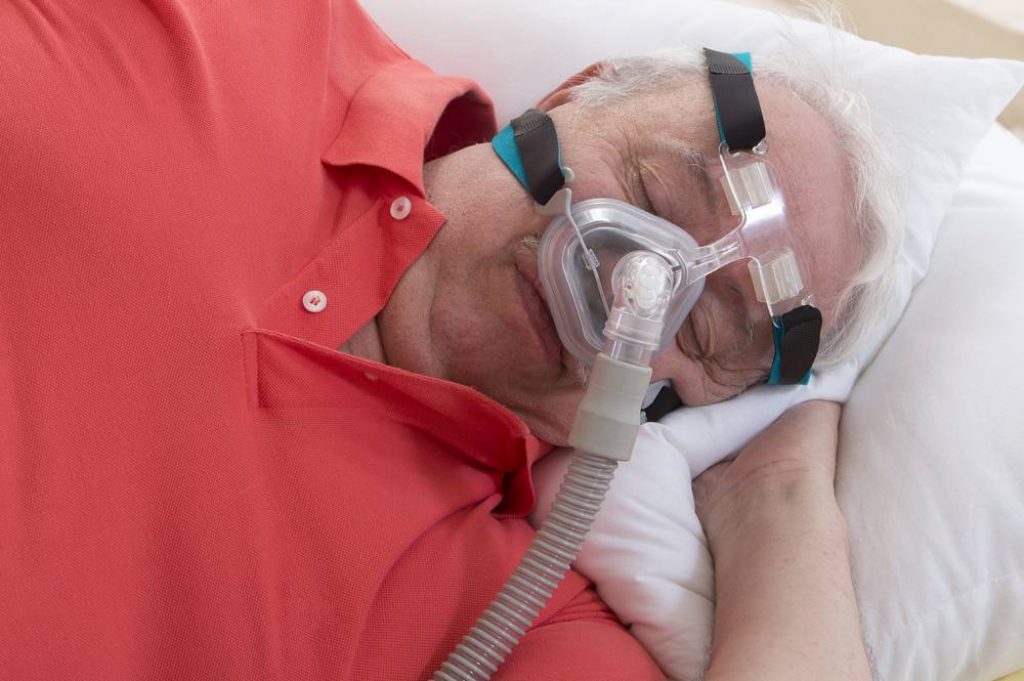
Signs You Are Suffering From Sleep Apnea
Sleep Apnea happens to be a severe sleep infirmity where breathing continuously halts and begins. If an individual snores loudly while sleeping or feels fatigued even after sleeping whole night, such a person might be suffering from sleep apnea…
Related Topics (Sponsored Ads):
A person with sleep apnea will suffer from a lack of proper sleep. Even if the condition is moderate and doesn’t fully wake a person up, it disrupts a healthy sleep cycle, usually many times during the night. More serious types of this condition will actually wake the person up, again many times during the night. In either case, there can be moderate to serious consequences for the person’s health.

Symptoms Of Sleep Apnea
The two most common symptoms of sleep apnea are chronic, usually loud snoring and chronic fatigue. However, these symptoms aren’t always present, plus snoring alone is not the same thing. Other signs are frequent waking up during the nigh; waking up gasping; chronic presence of dry mouth or headaches upon waking up; obesity and low immunity to illness.
Only a special examination by qualified medical personnel can properly diagnose a sleep apnea condition.
Causes and Consequences Of Sleep Apnea
The definitive cause for sleep apnea isn’t fully fully known. How it happens is known – the person’s upper respiratory tract gets partially or fully blocked while sleeping. A major connection to this condition is being overweight. Chances of sleep apnea increase with obesity Also, the incidence of this condition is higher among men in general and Black and Hispanic men in particular.
The consequences of sleep apnea can range from moderate to life threatening. They include: fatigue, lack of concentration, depression, high blood pressure, low immunity, heart disease, stroke, automobile accidents caused by falling asleep at the wheel, diabetes and other ailments.
Self-Help Treatments
There are many self-help treatments that you can try to improve or maybe even rid you of this condition:
– Lose weight. As discussed above, being overweight seems to have a major causal connection with sleep apnea.
– Do not sleep on your back. It is easier to breathe for anyone by sleeping preferably on your side or stomach. You can train yourself to do this by taping a small ball to the back of your neck at bedtime.
– Stop or reduce smoking and drinking of alcohol.
– Use a good decongestant nasal spray at bedtime.
– Run a humidifier near your bed while you sleep.
Medical Treatments
For more severe sleep apnea, self-help treatments will probably not be enough. Then, the following medical treatments may be necessary:
– Oral appliances: These are devices similar to orthodontic ones or mouth guards that athletes put in their mouths while playing. The purpose of these oral appliances is to slightly adjust your jaw and teeth to stop the blockage of your upper airway while you sleep. While these can be bought over the counter – they work much better if they are custom made through a specialized dentist.
– Positive Airway Pressure Devices (PAP): There are many types of these devices. They all use a breathing mask that forces air into your airways to prevent closure or blockage. PAPs are the most common form of medical treatment for moderate to severe sleep apnea. Use of these devices should only be done with the coordination of a proper physician.
– Surgery: This usually only done for severe and chronic sleep apnea conditions. Surgery can include the stimulation of certain nerves that can prevent closure of the upper airway. This is also sometimes done by placing a medical implant in the patient. Another form of surgery is the removal of excess fats and tissue that can be blocking the airway.




